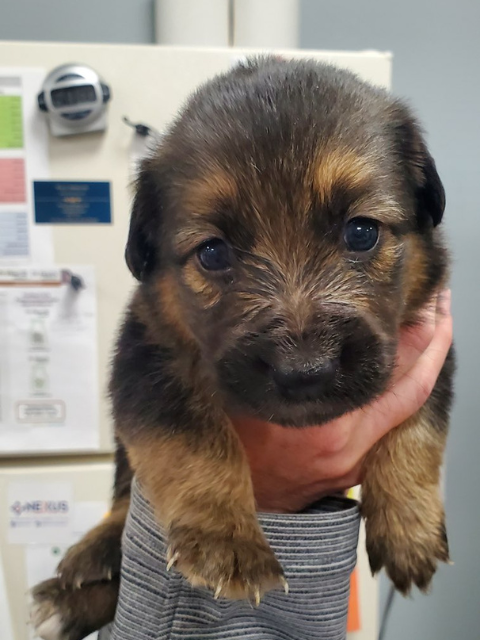
- Bordetella (Kennel Cough): Your dog should be vaccinated against kennel cough if you are boarding your animal while you are away from home, or even if your dog is just socializing with other dogs. The vaccine is frequently administered via a nasal spray as well as by injection. A dog with kennel cough often displays symptoms such as a deep, hacking cough and occasional mucus. If the disease is contracted, the dog is treated with a course of antibiotics.
- Distemper: This disease is usually fatal to dogs, and is highly contagious. It affects the respiratory, digestive and nervous systems, and is identified by its initial flu-like symptoms, including coughing, sneezing, runny nose and eyes, and lethargy. A high fever will accompany these symptoms and will be followed by diarrhea.
- Hepatitis: This disease is caused by a virus that affects the liver, causing your dog to experience a fever, runny eyes, and abdominal pain. The fever may increase, causing convulsions. This disease, without prior administration of pet vaccines can be fatal if not treated in a timely manner.
- Leptospirosis: A bacterial disease commonly contracted through drinking of stagnant water in which an infected animal has urinated. Leptospirosis is a zoonotic disease and can be spread to humans as well. In the beginning, symptoms may be nonexistent, but the disease will eventually lead to a kidney infection, vomiting, fever, and weight loss. The infection can be fatal if not treated, and the dog, if it survives, will most likely suffer from side-effects for the rest of his or her life.
- Parainfluenza: This is a highly contagious respiratory disease, whose symptoms include a dry cough, runny nose, and eyes, and lethargy. The disease will cause damage to the dog’s respiratory system and can be fatal if not treated quickly. If you are likely to board your dog, the administration of preventative vaccines for Parainfluenza is recommended.
- Parvovirus: A serious viral infection that can affect young, non-vaccinated puppies. Symptoms include bloody diarrhea, vomiting, and dehydration. A large percentage of puppies infected with parvo will die in just a few days if they do not receive hospitalization with aggressive fluid therapy and nursing care. Vaccinating female dogs before breeding and vaccinating puppies at 8 weeks of age with the Parvo vaccine is a very important preventative for this highly contagious disease.

